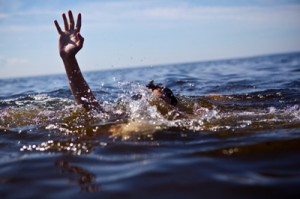
Many people have difficulty with the concept of powerlessness. By definition, addiction involves powerlessness over compulsions and cravings such that we behave destructively. It is true that we are powerless to do what is right when taken over by an addiction. Most of us are not powerless, however, to ask for help.
The other difficulty with the term “powerlessness” involves the question of whether we can heal from an addiction entirely on our own, without outside help. It is true that some of us are blessed with the ability to wake up to the pain and destruction we are causing and make a decision to quit when the pain becomes too great. People who can do this have what we might call good recovery skills, or the severity of their addiction may be so mild that they can indeed make a decision to stop on their own. Many people simply decide to stop smoking, for example, at some point in their lives when circumstances cause them to decide that they have had enough. The same is true of alcohol and other addictions.
Many more, however, truly are powerless to recover without help, either in the form of treatment, mutual support groups, help from friends and family, or from recovery literature. Many people want, every day, to be free of addiction, yet continue to destroy their lives, day after day. These people truly are powerless to overcome their addiction without help.
In the 12-step tradition help comes, in part, in the form of a transcendent “Higher Power.” Some people have the capacity to experience such a power in their lives and turn their lives and wills over to the care and guidance of this higher power. For others, this transcendent force is more imminent, in the here and now, and is experienced as:
- Love
- Grace
- Forgiveness
- Beauty
- Healing
- Kindness
- Consequences of our behavior—positive and negative
- The support, direction, and teaching of others—both in person and in various media
- Treatment providers
- Things that take away cravings (e.g. medications, recovery mentors and supports, recovery activities, recovery groups, Nature, etc.)
What it comes down to, in the end, is that our higher power is anything that helps to keep us sober—if only we humbly surrender ourselves to it and ask for the help we need.
So it is that most of us are not powerless over our addictions, in the sense that most of us can exert our power to ask for help. Asking for help and doing the work of recovery gives us power, with the help of others, over our addictions.
The people who are truly powerless in all ways are those who cannot ask for help and cannot do the work of recovery. These are the tragic few who will likely die a premature death. They may become destitute because of their addictions. Some of the nation’s homeless population falls into this category. Some are too arrogantly self-willed to humbly take the help available to them. As recovery requires honesty, those with an inability to be honest with themselves and others also may be powerless. Fortunately, it is only a small minority who are powerless to ask for help and turn their lives over to the transformative process of recovery.
